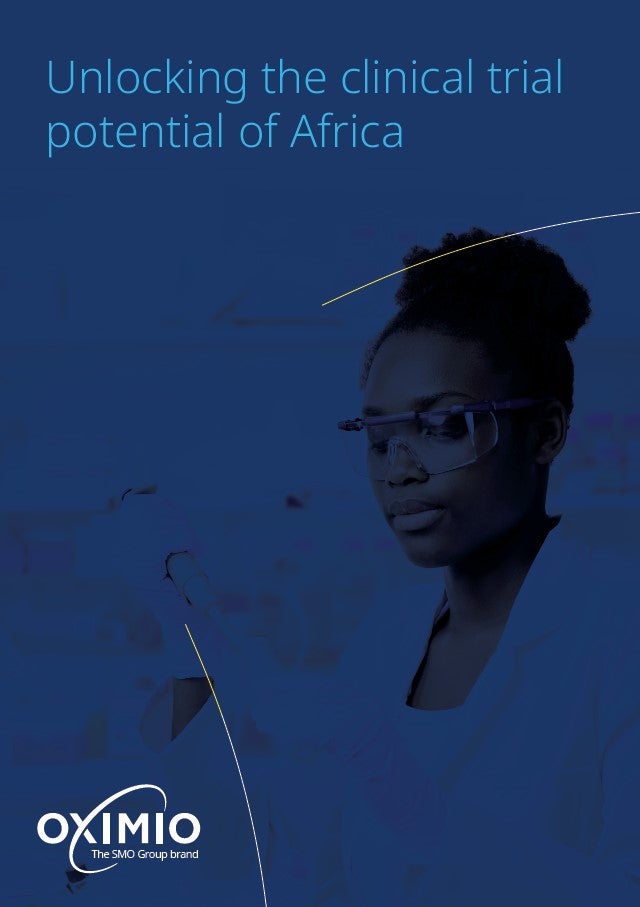
The last 12 months were full of challenges for trial sponsors and the clinical trials market saw dynamic change when the Covid-19 pandemic introduced new logistical problems that had to be confronted and solved rapidly. Now, as the dust begins to settle, pharmaceutical companies are faced with a market that looks quite different to the one before, while trends they were already familiar with continue to grow.
Pharmaceutical-technology.com spoke to experts at Oximio, a well-established clinical trials logistics service provider, to identify the seven key trends and market changes affecting clinical trials today.
1. Vaccine Trials on the Rise
The onset of a global health emergency last year set multiple biotech companies in a race to develop and bring to market a vaccine effective against SARS-CoV-2. According to the WHO’s Covid-19 Candidate Vaccine Landscape and Tracker, more than 80 coronavirus vaccines are currently being tested in clinical trials, and with over 180 in pre-clinical stages, it is clear that demand for vaccine trials will remain high.
High numbers of vaccine trials are influencing enrolment and start up periods. Logistics challenges affecting timelines and access to large populations can be solved by clinical trials services providers such as Oximio, who can offer ready-to-plug-in infrastructure and expedited timelines for gaining access into particular countries of clinical trial conduct.
The success of global immunisation efforts also relies on effective cold chain management, and this is important in trial stages too. Denis Volkov, Sales Director, Logistics Solutions at Oximio explains: “Everybody is handling vaccines these days, and everybody is running out of space. The cold chain storage capacity that may be required by vaccines in clinical trials is limited. Companies that have ready-to-plug-in infrastructure and spare capacity will benefit in the market. Oximio invested a lot last year to equip all our depots with frozen infrastructure so that we can maintain high quality levels on any frozen and ultra-low temperature products globally.”
2. Logistic Challenges of Brexit
Britain’s departure from the European Union (EU) has come with a number of logistics challenges for clinical trials. These are related to customs and borders, VAT handling, and the need to obtain Exporter of Records Identification (EORI) numbers for sites and suppliers.
Volkov argues that even companies contracting UK-based contract development and manufacturing organization (CDMO) companies will face these complications. “For now, they have to continue using UK companies because of specific Investigational Medicinal Product Dossier (IMPD) or Clinical Trial Authorisation (CTA) that they have from regulatory bodies, which requires them to keep the same manufacturing and packaging addresses. They also have to reclaim VAT and handle additional qualified person (QP) releases in Europe. This takes time and money and requires other partners to be involved in the supply chain,” he says.
Oximio’s UK office handles important export operations, and the service provider has a network of full-scale EU depots that can distribute products across the continent. These enable Oximio to link the two regions and consult clients on the best way to conduct this cross-border management in a post-Brexit era.
3. Disruptions to Clinical Trials
The most obvious impact of the global pandemic on clinical trials was the suspension of enrolment during periods of high contagion risk. In March 2021, GlobalData’s Pharma Intelligence Center reported that more than 1,200 clinical trials across the world had experienced disruption due to the Covid-19 outbreak. Alongside the issue of delayed timelines arose certain supply chain problems, including logistical challenges around the supply and transportation of biological samples and ancillary supplies for clinical trials.
Samuel Gal Alterovich, Oximio’s Director of Strategic Services and Alliances, identifies both short and long-term impact from the pandemic. The long-term impact is connected to using the best practices developed during Covid-19 changes, he says. “Remote monitoring was always a top discussion topic but it was never utilised in the best way. Right now, clinical research organisations are being forced towards infrastructure and technologies required to support things like direct-to-patient logistics. These will continue to be used after Covid. I see Covid as a catalyst for things that would have happened anyway, just more slowly.”
To keep clinical trials running during lockdowns, companies were required to respond quickly to the newfound challenges and restrictions. For Oximio, the Covid-19 pandemic was an opportunity to “showcase our adaptability in terms of almost carrying on business as normal”, says Zayheda Khan, Head of Procurement, Oximio, who concludes: “We had to push to be agile and adaptive to meet the needs of the client.”
4. Sudden Increase of Remote Trials
When the remote trial model witnessed sudden and increased deployment, big changes occurred to the traditional clinical trial supply chain. Direct-to-patient approaches provided a solution to the various logistics requirements of remote trials, with service providers like Oximio acting as the bridge between sponsors and patients.
With decentralised trials, global reach is more easily achievable for clinical trial sponsors. This includes even the most distant sites where patients are located. Despite the big opportunities this presents for clinical research in terms of expanded participant pools, challenges concerning dynamic customs regulations and the changing taxes and requirements for each location becomes a problem for sponsors attempting this approach. “There are also challenges of having to deal with medical regulations (or sometimes the lack of such regulations) that cover delivering drugs to patients,” adds Alterovich.
“This is where our company has a unique position,” says Volkov. “We have a range of local offices with the actual expertise and representatives who are up to date with all the local requirements and are able not only to follow the regulations, but to shape it in a particular frame, in order to simplify and enable a better environment for decentralised clinical trials with adaptive designs and remote monitoring.”
Such trials may have been rushed into adoption by the pandemic, but demand will remain high long after Covid. Oximio is thus looking at developing web and mobile applications for direct-to-patient logistics. These will offer extra information based on the company’s logistics processes, providing extra analysis of the services provided.
5. Personalised Medicines – Higher Benefits for Patients
The aim of personalised medicine is to analyse patients’ genetic profiles to find the right therapeutic for the right person the first time. It is a trend that has the potential to change the whole landscape of healthcare and would result in more targeted trials with greater success rates. This has obvious benefits for participants, who are more likely to receive an effective treatment with no adverse side effects. Meanwhile, sponsors reap the advantages of more cost-effective trials with lower abandonment rates. Trials are based around a select group of patients, with a much more limited number of subjects.
“These trials require very specific and dedicated supply chain management,” says Volkov. “They require complex infrastructure, direct-to-patient supply capabilities, and other aspects of patient-centric logistics. We actually build a trial around the patient and provide different retention services to them.
That leads to another benefit to using our company right now; we already have experience in handling such kind of trials. And what is more important is that we understand this trend and right now have a dedicated unit responsible for implementing and building up our service for these particular programmes.”
6. Expanded Access and Post-Trial Monitoring
Through expanded access programmes, patients outside of clinical trials who have severe, life-threatening conditions can gain access to investigational therapeutics when no alternative treatment option is satisfactory. In the EU, the European Medicines Agency recommends that clinical trial participants should be able to continue the investigational treatment they received in the trial, if desired.
The market for post-trial monitoring of this kind is growing as post-trial responsibilities increase for sponsors. Oximio is pioneering the service in Eastern Europe and some of the Middle East and North Africa (MENA) regions.
7. Digital Transformation
Digitisation is a trend affecting every industry going, and clinical trials are no exception. The 21st century has seen the development of a range of digital technologies that facilitate the collection, management and analysis of clinical trial data. Software platforms help trial sponsors achieve a more efficient, transparent clinical trial management process. They make it easier for stakeholders to access accurate study information from digital devices, improving decision-making and protocol following.
The introduction of Internet of Things devices like smart sensors, wearables and connected medical devices are used to collect physiological data on trial subjects, resulting in real-time monitoring, greater accuracy and richer data sets.
Clinical trial service providers, such as Oximio, are prepared to deal with the rapid changes affecting the clinical research industry. Some changes were foreseen, some came out of the blue.
The market is changing in response to growing expectations of sponsor companies and investors. However, current trends have been developing for a while. Oximio is prepared to help sponsors and actors of clinical trials to identify pain points that pose significant challenges to the pharmaceutical supply chain and can create logistics solutions accordingly.



